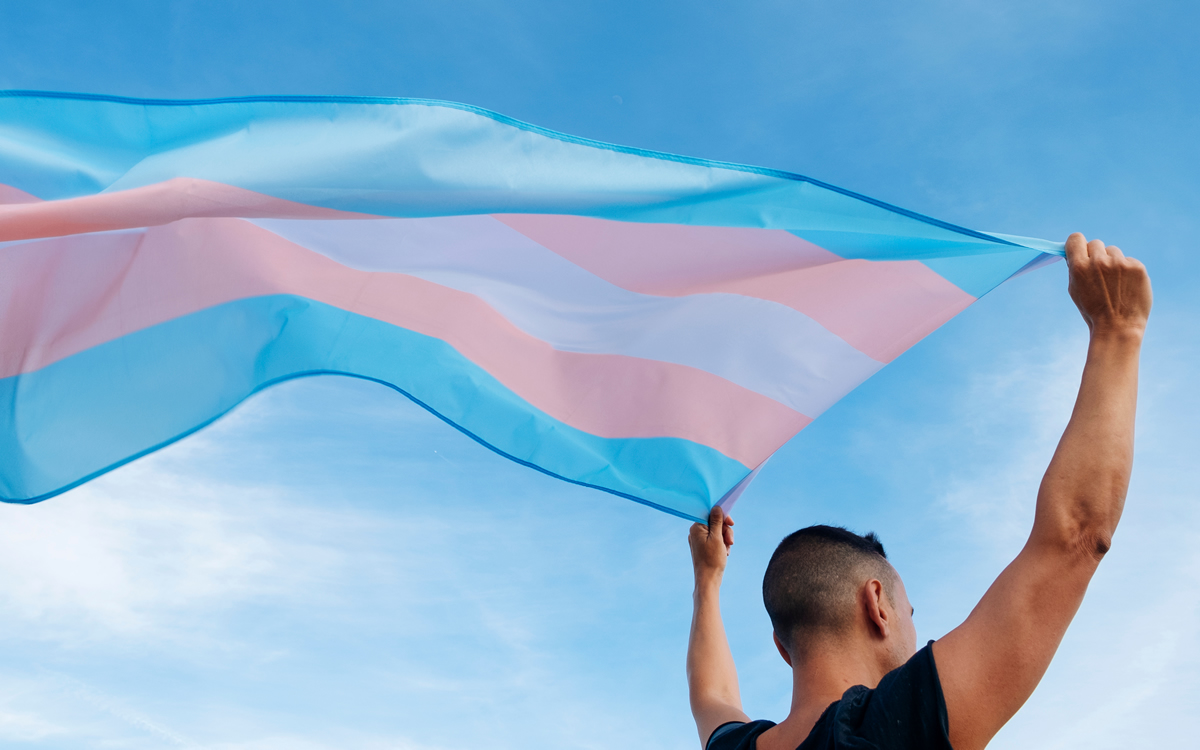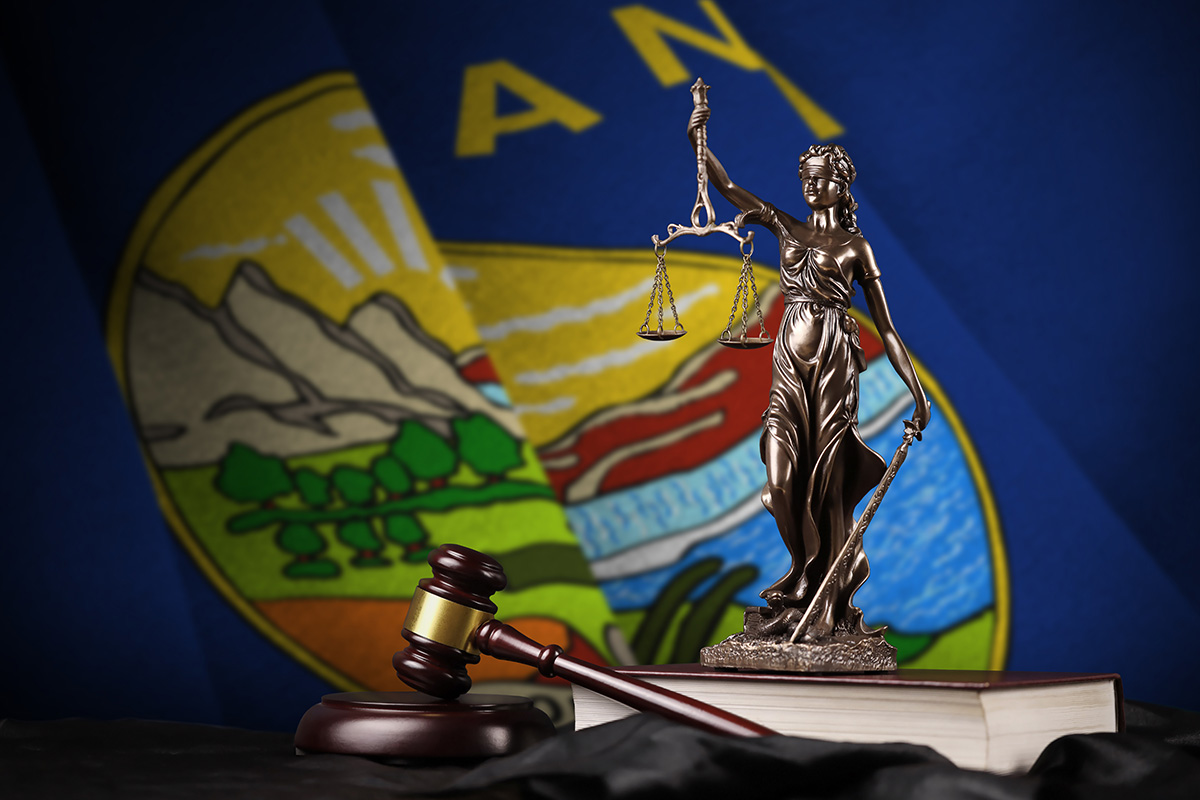Montana
Montana restricts birth certificate changes for transgender people
The rule puts Montana among the strictest states in the U.S. effectively bars trans people from changing the sex on their birth certificates


By Mara Silvers | Montana’s public health department said Friday it would adopt a new administrative rule that bars state residents from changing the sex on their birth certificates except in narrow circumstances. The now-final rule makes it nearly impossible for transgender Montanans to update the document to align with their gender identity.
The department’s change comes despite a judge’s preliminary injunction in April blocking a related law restricting birth certificate changes. That law, Senate Bill 280, would have required proof of surgery and a court order before a person could change the listed sex on their birth certificate, a less restrictive threshold than the new rule.
As written, the new policy says the sex listed on a person’s birth certificate may only be corrected if it was the “result of a scrivener’s error or a data entry error,” or if a person’s listed sex was proven to be incorrect by “chromosomal, molecular, karyotypic, DNA, or genetic testing.”
The policy doesn’t allow a birth certificate change based on self-reported gender identity, alignment with other official documents or after gender-affirming surgeries. It makes Montana one of the most restrictive states in the country for trans people who want to change their birth certificates.
The department’s new policy says the changes reflect its belief that sex, unlike a person’s gender identity, is a “biological concept” that cannot be changed. Additionally, the health department said the rule filled a “regulatory gap” created by Judge Michael Moses’ temporary injunction of SB 280, and also met the department’s obligation to maintain accurate vital records.
In a statement responding to the Friday announcement, the Montana Human Rights Network called the policy a “deeply disturbing” move by the administration of Gov. Greg Gianforte.
“They have gone against the advice of physical and mental health experts, teachers, parents and affected community members,” said Shawn Reagor, Director of Equality and Economic Justice at MHRN. “Montanans made their will clear in the public comment process, and the justification the Gianforte administration has given for flying in the face of that will can most generously be described as gaslighting and misleading.”
In a statement Friday about the new birth certificate rule, Gianforte press secretary Brooke Stroyke said the state “has an obligation to ensure the accuracy of vital records like birth certificates. This rule accomplishes that, and is consistent with law and science.”
The decision to adopt the new rule is nearly identical to the emergency rule the department enacted in May following the court’s injunction. That measure was forcefully criticized by transgender, nonbinary and two-spirit Montanans, as well as family members, supporters of LGBTQ+ civil rights, Democratic lawmakers and public health advocates.
In a June Zoom call with over a hundred attendees, dozens of opponents testified that the rule would negatively impact the health and wellbeing of trans people by forcing them to keep birth certificates that are incongruent with their gender identity and presentation. Opponents further said the rule could negatively impact trans peoples’ mental health and increase risks of suicidality among an already marginalized community. Only one person testified in favor of the proposal.
The department on Friday addressed the comments raised in public testimony, as state law requires, but largely dismissed opponents’ concerns as lacking evidence or being unconvincing.
“These comments allege that the rule will lead to increased rates of suicide within the transgender community. The department does not believe that there is scientific evidence — and commenters presented no such evidence — that the failure of birth certificates to reflect transgender individuals’ gender identity leads to an increase in suicide in the transgender community,” said the department’s response, signed by the Director of Public Health and Human Services Charlie Brereton.
Dr. Lauren Wilson, vice president of Montana’s chapter for the American Academy of Pediatrics, said in a statement Friday that the department’s decision was “extremely disappointing” and disregarded available research on the importance of affirming policies for transgender people.
“There is ample and strong evidence that the ability to socially transition (which involves living fully in their gender, and having matching documentation at school and work) improves mental health outcomes for transgender individuals,” Wilson said. “Allowing transgender people to update their documentation has been shown to be beneficial to their well-being and safety, and doesn’t hurt anyone else.”
Other commenters in June, including former DPHHS administrator Zoe Barnard, took issue with the legality of the rule and argued it didn’t meet the standard of being “reasonably necessary.” In her testimony, Barnard also said the department’s goal of maintaining its vital records system could have been achieved in other ways. The department, responding to Barnard’s comment, faulted her for failing “to identify what such options are.”
In a Friday interview, Barnard said the department was shirking its responsibility to explain the reason for its rulemaking.
“The agency shouldn’t shift [its] responsibility to the public,” Barnard said. “They are being willfully blind to the bulk of evidence which is a poor basis for sound public policy.”
The new rule will go into effect despite the ongoing legal battle over SB 280. Attorneys with the ACLU of Montana, which is representing the transgender plaintiffs in that case, said they will be back in court next Thursday in a hearing to clarify the judge’s preliminary injunction from April.
Akilah Lane, one of the plaintiff’s attorneys, said Friday that the new rule appeared to violate the judge’s order as the emergency rule did before.
“It’s in direct contravention,” she said. “This action is just further evidence of the state’s noncompliance with the preliminary injunction.”
Stroyke, with the governor’s office, did not respond to an additional request to comment on Lane’s statement that the state was in violation of the judge’s April order.
*************************

Mara Silvers writes about health and human services stories happening in local communities, the Montana statehouse and the court system. She also produces the Shared State podcast in collaboration with MTPR and YPR. Before joining Montana Free Press, Mara worked in podcast and radio production at Slate and WNYC. She was born and raised in Helena, MT and graduated from Seattle University in 2016.
**********************
The preceding piece was previously published by Montana Free Press and is republished with permission.
SUPPORT A FREE AND INDEPENDENT PRESS
Unbiased, unflinching journalism is critical to our democracy. When you donate to Montana Free Press, you are helping build a newsroom that serves the people of Montana, not advertisers or special interests. (Link)
Montana
Montana Supreme Court blocks ban on healthcare for trans youth
‘Today’s ruling permits our clients to breathe a sigh of relief’

The Montana Supreme Court on Wednesday ruled that SB 99, a 2023 Montana law that bans life-saving gender-affirming care for transgender youth, is unconstitutional under the Montana Constitution’s privacy clause, which prohibits government intrusion into private medical decisions. This ruling will allow Montana communities and families to continue accessing medical treatments for transgender minors with gender dysphoria, the ACLU announced in a statement.
“I will never understand why my representatives are working to strip me of my rights and the rights of other transgender kids,” Phoebe Cross, a 17-year-old transgender boy told the ACLU. “Just living as a trans teenager is difficult enough, the last thing me and my peers need is to have our rights taken away.”
“Fortunately, the Montana Supreme Court understands the danger of the state interfering with critical healthcare,” said Lambda Legal Counsel Kell Olson. “Because Montana’s constitutional protections are even stronger than their federal counterparts, transgender youth in Montana can sleep easier tonight knowing that they can continue to thrive for now, without this looming threat hanging over their heads.”
“We are so thankful for this opportunity to protect trans youth, their families, and their medical providers from this baseless and dangerous law,” said Malita Picasso, Staff Attorney for the ACLU’s LGBTQ & HIV Project. “Every day that transgender Montanans are able to access this care is a critical and life-saving victory. We will never stop fighting until every transgender person has the care and support they need to thrive.”
“Today’s ruling permits our clients to breathe a sigh of relief,” said Akilah Deernose, Executive Director of the ACLU of Montana. “But the fight for trans rights is far from over. We will continue to push for the right of all Montanans, including those who are transgender, to be themselves and live their lives free of intrusive government interference.”
The Court found that the Plaintiffs were likely to succeed on the merits of their privacy claim, holding: “The Legislature did not make gender-affirming care unlawful. Nor did it make the treatments unlawful for all minors. Instead, it restricted a broad swath of medical treatments only when sought for a particular purpose. The record indicates that Provider Plaintiffs, or other medical professionals providing gender-affirming care, are recognized as competent in the medical community to provide that care.[T]he law puts governmental regulation in the mix of an individual’s fundamental right ‘to make medical judgments affecting her or his bodily integrity and health in partnership with a chosen health care provider.’
Two justices filed a concurrence arguing that the Court should also clarify that discrimination on the basis of transgender status is a form of sex discrimination prohibited by Montana’s Equal Protection Clause, the ACLU reported.
Montana
Man sentenced for federal hate crime after attempting anti-LGBTQ mass shooting
John Russell Howald received 18-year prison sentence

A Montana man was sentenced to 18 years in prison for attempting to shoot victims with the intent to rid his town of LGBTQ residents, the Justice Department announced in a press release Wednesday.
After a four day trial in February, a jury convicted the man, John Russell Howald, of firing an AK-style rifle into the home of a woman who was known to be a lesbian, and “then walking further into town intending to target others he perceived to be lesbian, queer, and gay.”
Assistant Attorney General Kristen Clarke of the Justice Department’s Civil Rights Division said, “This defendant is being held accountable for his horrific attempted mass shooting against the LGBTQI+ community in a Montana town.”
The defendant “set out to rid the town of all LGBTQI+ members by killing them,” Clarke said. “He shot into the home of a lesbian resident, nearly killing her, with the hope of inspiring similar attacks around the country.”
Last week, the White House announced plans to better combat anti-LGBTQ violence through a community safety partnership administered by the Justice Department along with the U.S. Departments of Homeland Security and Health and Human Services.
White House Domestic Policy Advisor Neera Tanden told reporters the partnership will help LGBTQ community centers “prepare for the worst” — including “bomb threats, active shooters, and cybersecurity threats — while also protecting “healthcare providers who serve the community by working with doctors and medical associations.”
“This Pride month,” DOJ wrote in the press release about Howald, “we affirm our commitment to using the Matthew Shepard and James Byrd Hate Crimes Prevention Act to hold perpetrators of hate-fueled violence targeting the LGBTQI+ community accountable.”
“Motivated by hatred of the LGBTQI+ community and armed with multiple firearms and high-capacity magazines, this defendant sought to intimidate — even terrorize — an entire community by shooting into the victim’s home trying to kill her for no reason other than her sexual orientation, this defendant did something distinctly un-American by depriving her of her sense of safety, freedom and privacy all at once,” said Steven Dettelbach, director of the Bureau of Alcohol, Tobacco, Firearms and Explosives.

The American Civil Liberties Union of Montana. the law partners of Beck, Amsden, and Stalpes, and Mike Black, Esq., filed a lawsuit in state court today challenging the censure of state Rep. Zooey Zephyr.
The lawsuit alleges that recent actions undertaken by House leadership to silence Zephyr are a violation of her own First Amendment rights and the rights of her 11,000 constituents to representation in their state government.
“This effort by House leadership to silence me and my constituents is a disturbing and terrifying affront to democracy itself,” said Zephyr. “House leadership explicitly and directly targeted me and my district because I dared to give voice to the values and needs of transgender people like myself. By doing so, they’ve denied me my own rights under the Constitution and, more importantly, the rights of my constituents to just representation in their own government. The Montana State House is the people’s House, not Speaker Regier’s, and I’m determined to defend the right of the people to have their voices heard.”
“Suicide amongst transgender youth is not imaginary,” said Anna Wong, a resident of Montana House District 100 and a named party in the suit. “It is not a game and it is not a political foil. It is real. It is heartbreaking. And it is the responsibility of my representative to speak out against bills promoting it. I expected Rep. Zephyr to oppose, and her comments leading to expulsion from the House floor, which I have listened to, seem incredibly measured and muted compared to the severity of the situation.”
“Representative Zephyr was elected by the people of her district after running on the very principles she is now being punished for defending,” said Alex Rate, legal director of the ACLU of Montana. “In his craven pursuit to deny transgender youth and their families the health care they need, Speaker Regier has unfairly, unjustly, and unconstitutionally silenced those voters by silencing their representative. His actions are a direct threat to the bedrock principles that uphold our entire democracy, and we welcome the privilege of defending the people of Montana’s 100th House District from this desperate and autocratic effort to silence them.”
Between April 20 and April 24, 2023, House leadership repeatedly refused to recognize Zephyr, the state’s only openly trans lawmaker, in all official proceedings. Following April 24 protests from Zephyr’s constituents who demanded she be allowed to speak, Regier voted to formally censure Zephyr on April 26, physically excluding her from the grounds of the State Capitol and denying her the right to engage in debate on important matters of public policy. The censure effectively denies her constituents adequate representation in their own state government.
When Zephyr showed up to work at the state capitol on April 27, she was told she could not enter the House chamber. In addition, since the censure, four study bills awaiting votes in the committees on which Zephyr sits were either transferred to a different committee or elevated to the house floor, effectively eliminating all public committee hearings in which she was scheduled to participate.
The censure unfairly and unconstitutionally targeted Zephyr for voicing her objection to Senate Bill 99, a ban on the rights of transgender youth and their families to access gender-affirming health care since signed into law by Republican Gov. Greg Gianforte on April 28.
The ACLU, the ACLU of Montana, and Lambda Legal have promised to challenge SB 99 in court.
-

 Baltimore4 days ago
Baltimore4 days ago‘Heated Rivalry’ fandom exposes LGBTQ divide in Baltimore
-

 Real Estate4 days ago
Real Estate4 days agoHome is where the heart is
-

 District of Columbia4 days ago
District of Columbia4 days agoDeon Jones speaks about D.C. Department of Corrections bias lawsuit settlement
-

 European Union4 days ago
European Union4 days agoEuropean Parliament resolution backs ‘full recognition of trans women as women’



















